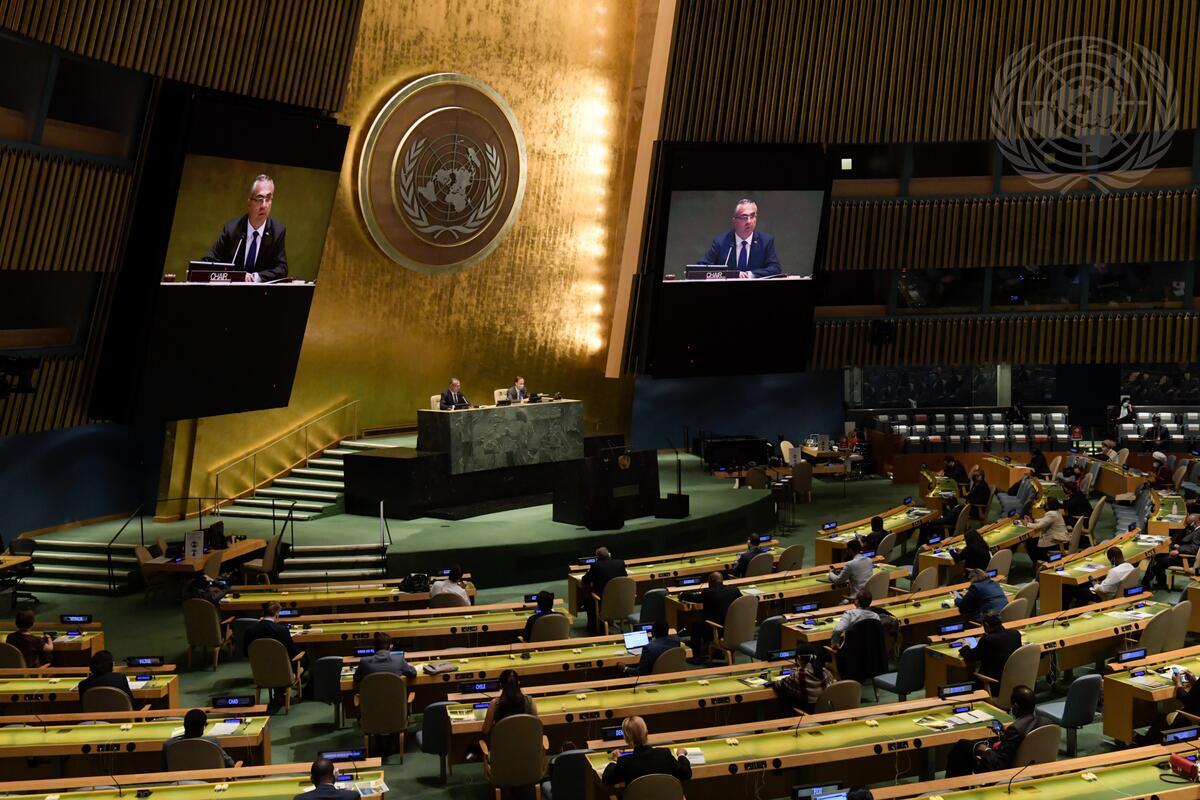
Examining Local and Global Accountability in the Wake of the Chauvin Trial

Sometimes the world’s eyes turn to the United States. What Americans may think of as domestic or political issues may also be considered through a global human rights, human security or justice lens. On 20 April 2021, Officer Derek Chauvin of the Minneapolis Police Department was found guilty of second-degree murder, third-degree murder, and second-degree manslaughter for his role in the death of George Floyd. As noted by the American Civil Liberties Union (ACLU), this was the first time in Minnesota state history that “a white police officer has been held accountable for killing a Black man.”
While Floyd’s death and Chauvin’s trial occurred in Minnesota, this conviction, as well as the larger problem of police brutality, are anything but local issues. In fact, following the verdict of the trial, United Nations High Commissioner for Human Rights and former Chilean President, Michelle Bachelet, released a statement in which she welcomed the jury’s decision, calling “any other result…a travesty of justice.”
Putting local issues into a global context enables productive reframing and dialogue. Bachelet’s comments, which echo those of the ACLU, suggest an important distinction between accountability and justice. The ACLU has stated plainly: “Justice would be George Floyd being home with his family, his loved ones, and his community today” (ACLU, 2021b).
Accountability is a step forward, but it is important to to understand that, across the globe and (perhaps especially) in the United States, the fight for anti-racist transformation is far from over. Advocating for the importance of building on this moment to create change, Bachlet stated that “now is also the time to critically examine the context in which George Floyd’s killing took place by revisiting the past…The entrenched legacy of discriminatory policies and systems, including the legacies of enslavement and transatlantic trade and the impact of colonialism, must be decisively uprooted in order to achieve racial justice and equality.” Other world leaders expressed similar sentiments, including Agnes Callamard, the current Secretary General of Amnesty International and former Special Rapporteur to the UNHRC, who stated that the Chauvin verdict “should only be the first step towards a long overdue proportionate attention to, and admission of, the historical crimes committed against black communities.” Justin Trudeau, Canadian Prime Minister, also welcomed the verdict, but noted that “…it still underlines that there’s an awful lot of work to do” especially regarding “…the micro-aggressions, the overt racism, the challenges within our institutions and within our daily lives that exist need to be addressed.”
At the United Nations, several efforts are already underway to promote the advancement of racial equity across the globe, including the creation of the Special Rapporteur on Contemporary Forms of Racism, Racial Discrimination, Xenophobia and Related Intolerance as well as of the Special Rapporteur on Minority Issues. Additionally, the United Nations has established the Committee on the Elimination of Racial Discrimination (CERD), a body that tracks the implementation and success of the International Convention on the Elimination of All Forms of Racial Discrimination (ICERD) in individual States.
As a continuation of the United Nation’s commitment to racial equity, in June 2021, High Commissioner Bachelet (2021) presented a report to the Human Rights Council (HRC) that contains “an agenda for transformative change to dismantle systemic racism and police brutality against Africans and people of African descent, and to advance accountability and redress for victims.” The High Commissioner’s report was initiated as the result of HRC Resolution 43/1 on the promotion and protection of the human rights and fundamental freedoms of Africans and of people of African descent against excessive use of force and other human rights violations by law enforcement officers. The resolution, which also explicitly condemns the racially motivated practices that contributed to the death of George Floyd as well as the structural racism that is pervasive throughout the criminal justice system, was adopted by the HRC on 19 June 2020 (also known as Juneteenth).
While the conviction of Derek Chauvin may have been hailed as welcome and even necessary around the world, it is part of a much larger story. It is time for accountability, but it is also time for justice. Ending racism is a moral and human rights imperative. It is time for Black and Brown people to be valued and for their human rights to be respected, a goal that the United Nations and HRC arerioritizing and emphasizing through their current work.
Many questions remain in these global endeavors, though. Will the HRC be part of holding the United States accountable? Will such accountability lead to transformative change, and what does this change tangibly look like? How can the United Nations promote all States – including but not limited to the United States—to commit to ending police brutality? And perhaps the largest question of all—how can our global world truly ensure that Black Lives Matter?
Keep Up With The Accords
More to read
The AMUN Accords is a premier resource for fact-based Model United Nations simulations. We are always looking for new contributors. Want to write for the AMUN Accords? Check out out the submission guidelines and then get in touch!




